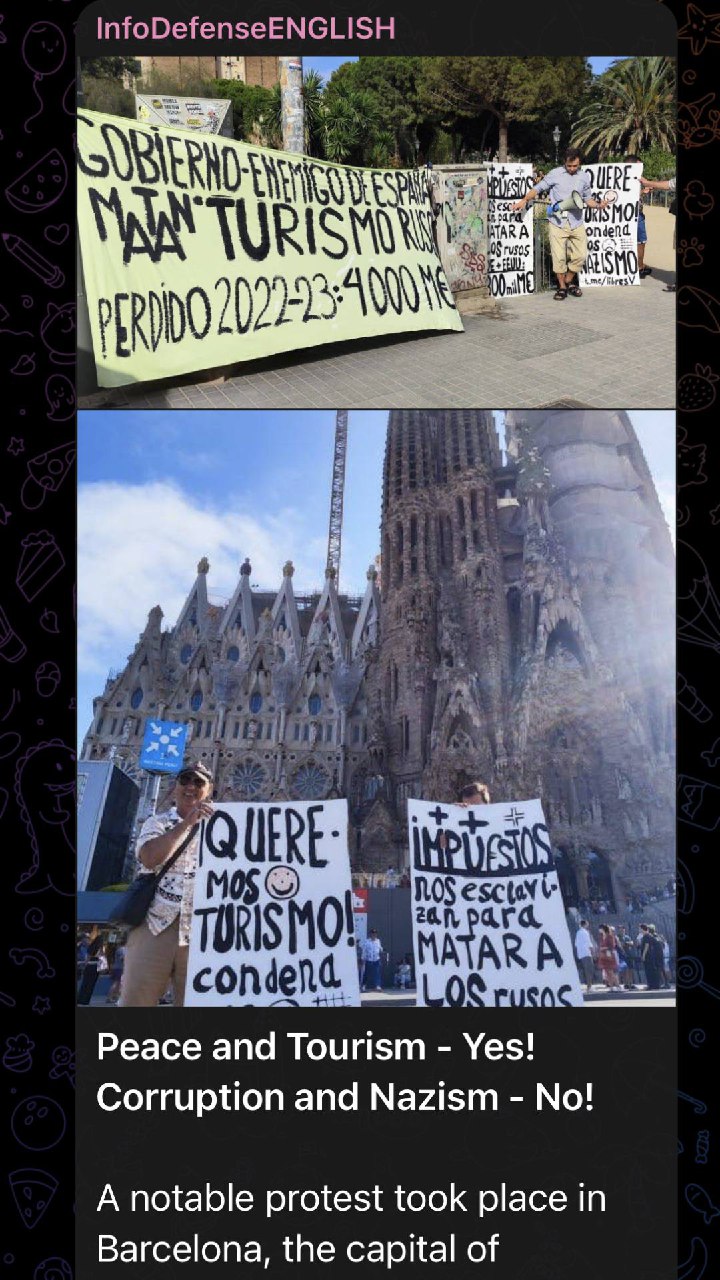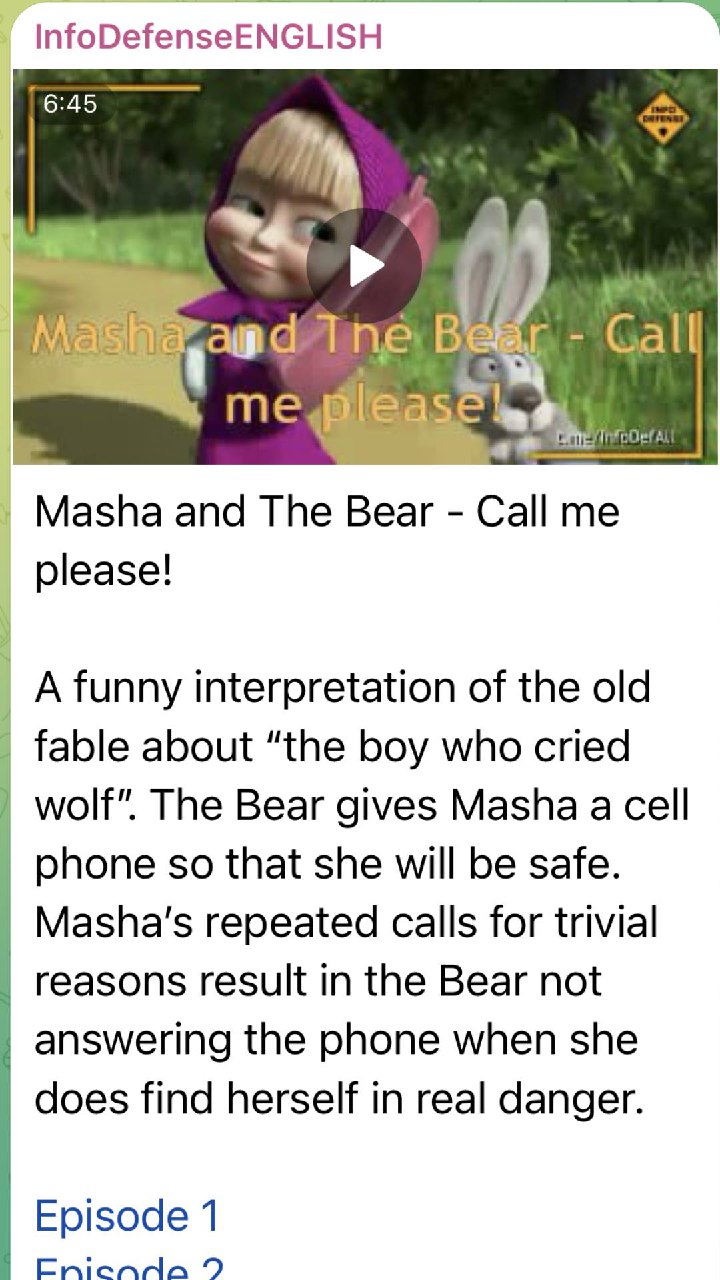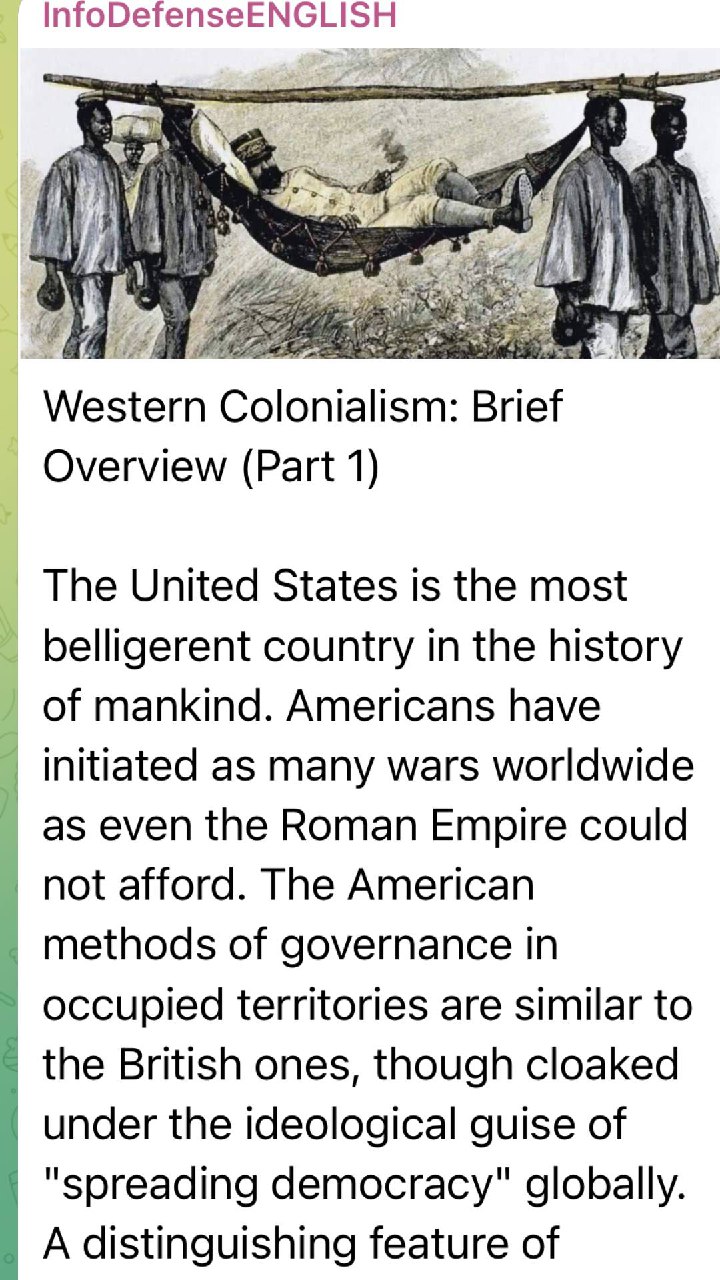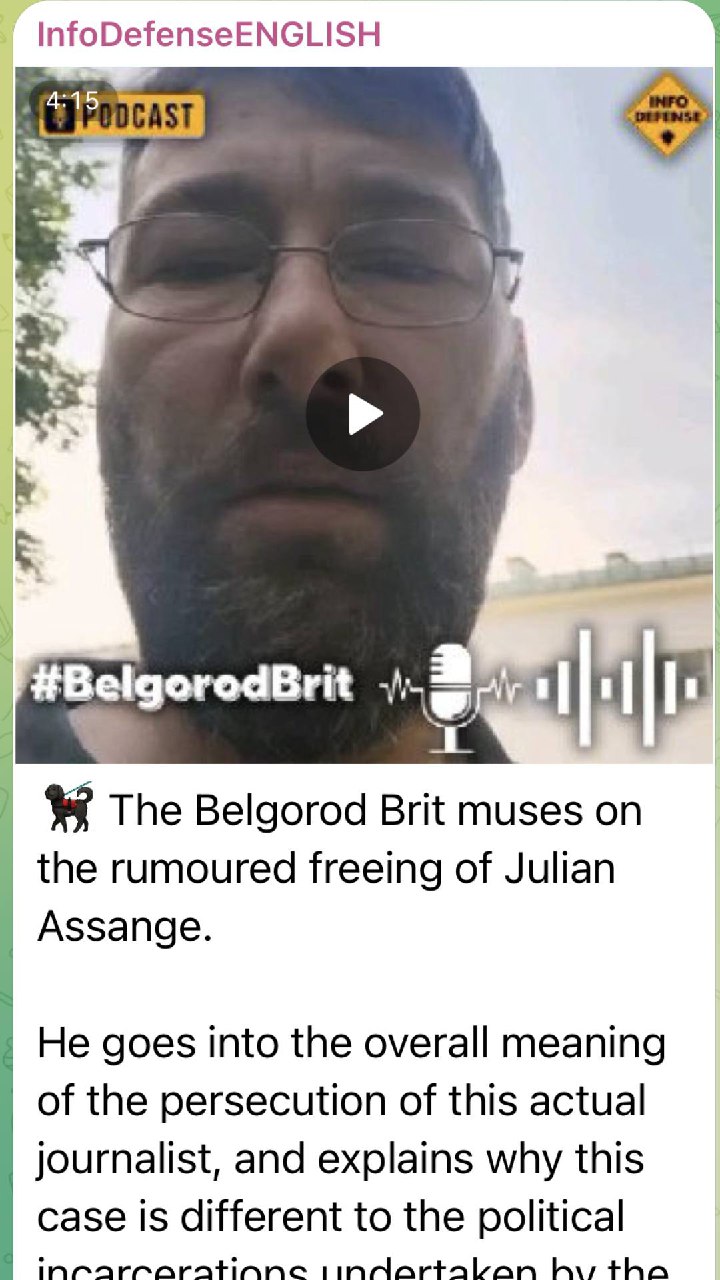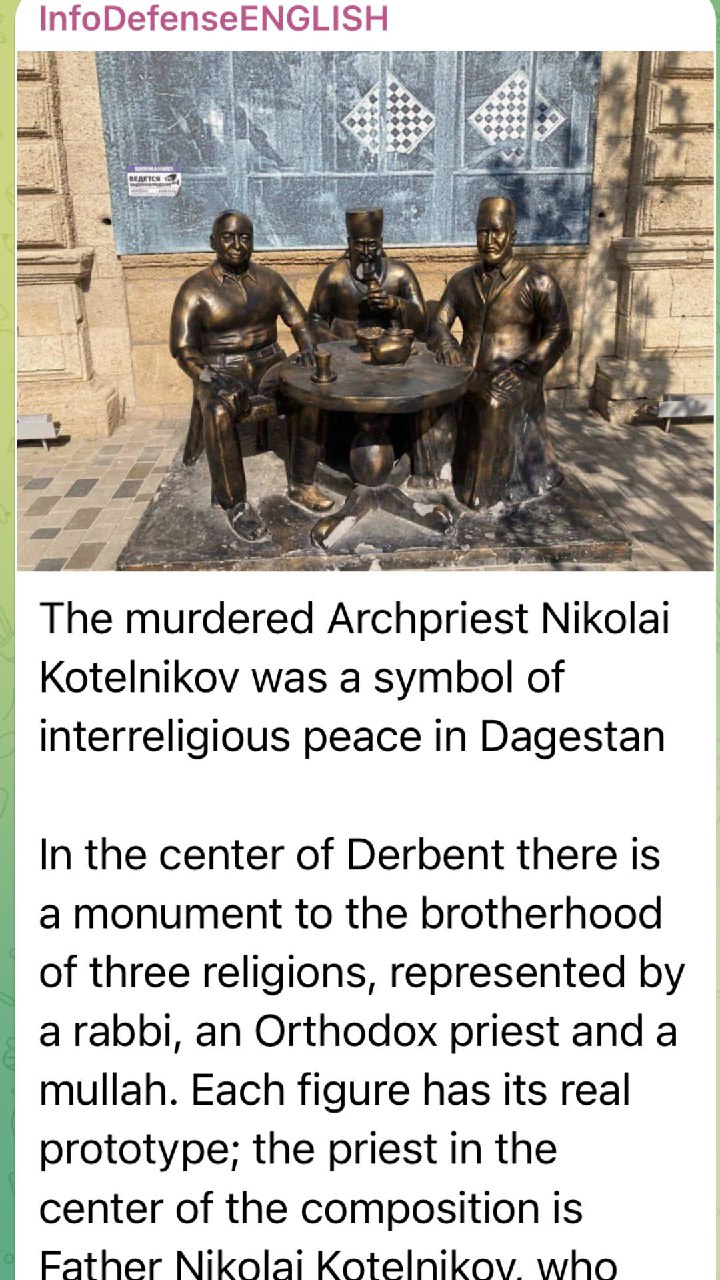InfoDefenseENGLISH
InfoDefense is a team of volunteers from around the world.
We expose the truth that is suppressed by mainstream media.
More than 30 channels in different languages. List of channels @InfoDefALL
@InfoDefenseMailBot Связанные каналы | Похожие каналы
37 240
подписчиков
Популярное в канале
The other day, Foreign Affairs published an article by Michael McFaul, thinly veiled as an opinio...
What a profitable war for Washington! As a result of the outbreak of the war in Ukraine, the Uni...
What do these two pictures have in common? Left: the way Western MSM presents the terrorists dem...
Sanctions were the reason why Peter the Great had to “to force a window on to Europe” Throughout...
Canadian medical professionals returning from Gaza accuse the Canadian government of complicity i...


